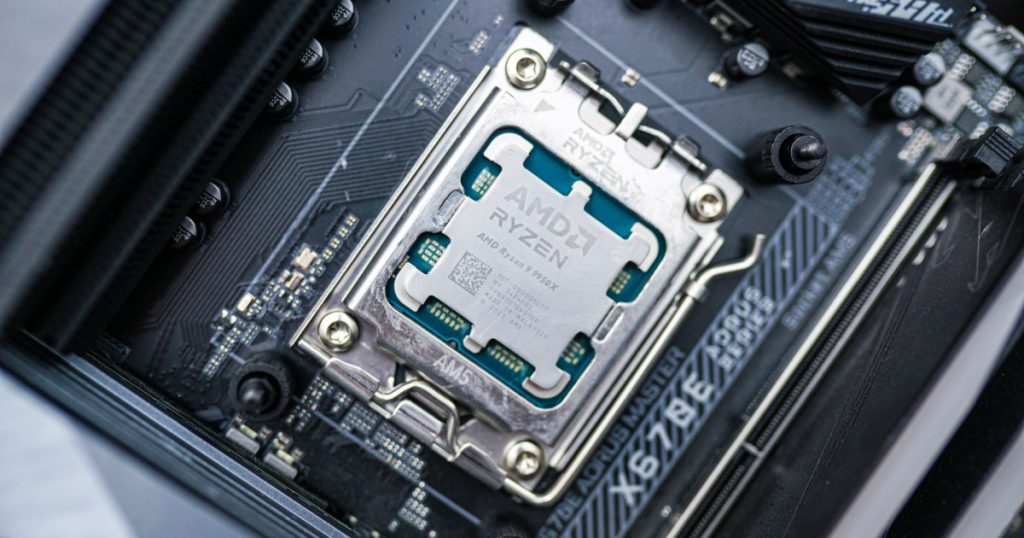AMD had high expectations for its new Ryzen 9 9950X processor, touting it as the best the world has ever seen. However, initial reviews show that while the Ryzen 9 9950X offers some advantages, it falls short in several benchmarks.
Intel’s competing Core i9-14900K is surprisingly relevant in light of the new Zen 5 CPUs, especially given its lower price. Both processors excel in gaming and productivity tasks, with Intel currently holding the upper hand in performance.
Specs
Directly comparing the specs of AMD and Intel CPUs can be misleading due to their different architectures. However, some key differences include Intel’s hybrid architecture combining P and E cores, providing more threads compared to AMD’s single core design. The Ryzen 9 9950X vs. Core i9-14900K specs comparison highlights these differences.
When it comes to packaging and power consumption, Intel’s approach offers more threads but not all are equally efficient. The Ryzen 9 9950X may have fewer cores but a more traditional approach better suited for a desktop flagship.
| Ryzen 9 9950X | Core i9-14900K | |
| Cores/Threads | 16/32 | 24 (8 P + 16 E)/32 |
| L3/L2 Cache | 64MB / 16MB | 32MB / 32MB |
| Max turbo frequency | 5.7GHz | 6GHz |
| TDP | 170W | PL1: 125W / PL2: 253W |
Intel’s power consumption may be higher, but the Core i9-14900K offers competitive pricing compared to the Ryzen 9 9950X, making it a more accessible choice for consumers. With multiple variants available, Intel provides flexibility in performance and cost options.
Pricing

While both CPUs have the same list price, the actual retail pricing varies significantly. The Ryzen 9 9950X, being a new release, holds its launch price of $650, while the Core i9-14900K, available for nearly a year, is priced lower at $546. Intel also offers additional variants like the Core i9-14900KF and Core i9-14900F at reduced prices.
Considering pricing and performance, the Core i9-14900K is currently a more cost-effective option for consumers. However, fluctuations in pricing and AMD’s future releases may impact this comparison.
Productivity performance
When it comes to productivity tasks, the Ryzen 9 9950X excels with superior multi-core performance in applications like Cinebench, 7-Zip, Blender, Photoshop, and Handbrake. Its support for AVX-512 instructions and a dedicated data path provide a significant boost for AI applications.
In comparison, the Core i9-14900K offers competitive single-core performance but lags behind in multi-core tasks. While the performance gap varies across different applications, the Ryzen 9 9950X maintains a consistent lead in productivity workloads.
Gaming performance
For gaming, the Core i9-14900K outperforms the Ryzen 9 9950X in most tests, showcasing its prowess in gaming applications. The Ryzen 9 9950X’s advantage lies in its support for AVX-512 instructions, providing a performance boost in specific gaming scenarios like PS3 emulation.
Despite its gaming performance, the Ryzen 9 9950X remains a strong contender for non-gaming workloads, offering a balance of performance and price for productivity tasks. However, for gaming-centric users, alternative options like the Ryzen 7 7800X3D may provide better value.
A note on stability
Intel has addressed stability issues in its 13th-gen and 14th-gen CPUs, particularly for high-end unlocked models like the Core i9-14900K. A microcode update aims to prevent instability, and Intel has extended the warranty on its CPUs to five years. Consumers should monitor the situation for any updates or changes.
A bloodbath
While the Ryzen 9 9950X offers impressive productivity performance, the Core i9-14900K remains a competitive alternative with strong gaming capabilities and a lower price point. Consumers seeking a balance of performance and affordability may find the Core i9-14900K a more appealing choice, especially considering Intel’s future CPU releases.


